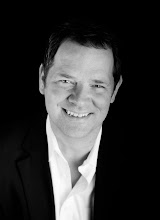
This is from a Chuck Swindoll sermon and it impacted me greatly and served as a crucial reminder that I felt compelled to pass it along to you.
Read this biographical sketch and see if you can guess who this person is.
He began his life with all the classic handicaps and disadvantages. His mother was a powerfully built dominating woman who found it difficult to love anyone. She had been married three times, and her second husband divorced her because she beat him up regularly. The father of the child I’m describing was her third husband and died two months before the child’s birth.
As a consequence she had to work long hours during the early years of his childhood. She gave him no love, no affection, no discipline, and no training during those early years. She even forbade him from calling her at work. Other children had little to do with him, so he was alone most of the time.
He was absolutely rejected from his earliest childhood. He was ugly, and poor, and untrained and unlovable. When he was thirteen years old a child psychologist commented that he probably didn’t even know the meaning of the word love.
During adolescence the girls would have nothing to do with him, and he fought with the boys. Despite a high IQ, he failed academically, and finally dropped out his third year of high school.
He thought he might find a new acceptance in the Marine Corp, they reportedly built men and he wanted to be one, but his problems went with him. The other marines laughed at him, and ridiculed him. He fought back, resisted authority and was court martialed and thrown out of the Marines with a discharge marked undesirable.
So there he was – a young man in his early twenties absolutely friendless and shipwrecked.
He was a small and scrawny man. He had an adolescent squeak in his voice, he was balding, he had no talent, he had no skill – he didn’t even have a driver’s license.
Once again, he thought he could run from his problems, so he went to a foreign country to live. When he applied for citizenship, he was rejected there too. Nothing had changed.
While there, he married a girl who herself had been an illegitimate child, and brought her back to America to live.
Soon, she began to develop the same contempt for him that everyone else displayed. She bore him two children, but he never enjoyed the status and respect a father should have. His marriage began to crumble. His wife began to demand more and more things that he could not provide. In stead of being his ally against a bitter world, as he had hoped, she became his most vicious opponent. She could outfight him, and she learned to bully him. On one occasion, she locked him in the bathroom as punishment. Finally, she forced him to leave.
He tried to make it on his own and was terribly lonely. After days of solitude he went home and literally begged her on his knees to take him back. He surrendered all pride. He crawled. He accepted humiliation. He came on her terms.
Despite his meager salary, he brought her $78 as a gift, asking her to take it and spend it anyway she wished. She laughed at it. She belittled his feeble attempts to supply the family’s needs. She ridiculed his failure. She made fun of his sexual impotency in front of a friend.
At one point he fell on his knees and wept bitterly as the great darkness of his private nightmare enveloped him. Finally, in silence, he pleaded no more.
No one wanted him. No one had ever wanted him. He was perhaps the most rejected man of our time. His ego lay shattered in a fragmented dust.
The next day, he was a strangely different man. He arose, went to the garage, took down a rifle that he had hidden there and carried it with him to his newly acquired job at a book storage building. From a window on the third floor of that building, shortly after noon on November 22, 1963, he sent two shells crashing into the head of President John Fitzgerald Kennedy.
Lee Harvey Oswald, the rejected, unlovable failure, killed the man who more than any other on earth embodied all the success, beauty, wealth and family affection that he lacked. In firing that rifle, he utilized the one skill he had learned in his entire miserable lifetime.
Those people you don't like? They have a context. Those people that irritate you? They have a context. Those people that make you feel sad? They have a context.
It is so easy to demonize people in our world, but they have a story that we rarely hear until it is too late. How do you think Lee Harvey Oswald's world - and ours - would be different if he felt loved? What if the followers of Jesus showed him the love of the Gospel?
Wanna change the world? Who irritates you? What's their story? What's their context? Do you know? Why not?
![]()
![]()
![]()
![]()

![]()
![]()
